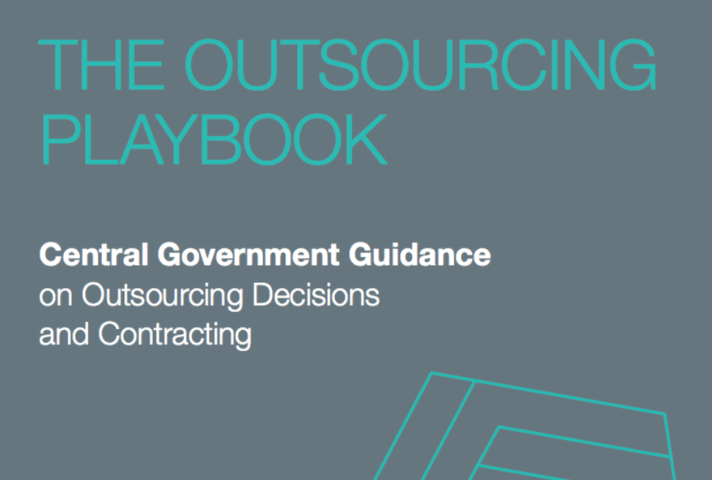
- Government's Playbook designed to improve how government works with industry and the voluntary sector
- Measures include allocating risks to those best able to manage them and piloting new projects before rolling them out
- Minister says these steps will ensure that future outsourced services are set up to succeed and provide the best possible public services
The government's Outsourcing Playbook, which has been designed to improve how government works with industry and deliver better public services, has today been launched by Cabinet Office Minister, Oliver Dowden.
The Outsourcing Playbook guidance will ensure that the government gets right more projects from the start, engages with a diverse and healthy marketplace of companies, including small businesses and charities, and is ready for the rare occasions when things go wrong.
This follows reforms announced in recent months by the Chancellor of the Duchy of Lancaster and Minister for the Cabinet Office, David Lidington, to ensure that government procurement is fit for the future, including putting social values at the heart of public service delivery.
New measures announced today include changes to how government allocates risk between itself and its suppliers, to ensure contracts are set-up for success and the public are provided with the best possible service.
The government is also taking steps to improve the design of outsourcing projects from their inception. New complex contracts will be piloted with the private sector before rolling out fully, enabling the government to learn from experience and deliver better public services.
In a speech to business leaders at the CBI today, Oliver Dowden said:
Outsourcing can deliver significant benefits, including value for money and more innovative public services. Our new measures will improve how the government works with industry and provide better public services for people across the country.
I can today provide reassurance that the Playbook makes explicit that, when designing contracts, departments must seek to mitigate, reduce and then allocate risks to the party best able to manage it.
A more considered approach to risk allocation will make us a smarter, more attractive client to do business with.
Jon Lewis, the CEO of Capita, one of the suppliers which government worked with to develop the new measures, said:
Capita is working closely with government to develop these reforms. This is a sea-change, both recognising the vital contribution the private sector makes in delivering first-rate public services, and then finding ways to do this even better.
These new ways of working will place a stronger focus on establishing partnerships based on mutual trust and a joint focus on positive outcomes. This is fundamental to the successful procurement and delivery of public-sector contracts.
Further measures in the Playbook include suppliers drawing up plans in the unlikely event of business failure, and requiring them to publish key performance data - all announced by Minister David Lidington in recent months.
Background information
Measures in the Playbook include:
- Requirement for Pilots - enabling the government to learn from experience and deliver better public services
- Risk Allocation - to ensure contracts are set up for success from the outset
- Key Performance Indicators - KPIs from every new outsourcing contract will be made publicly available
- Resolution Plans (Living Wills) - For the rare event of the supplier's corporate failure
- Publication of Pipelines - Departments will be required to regularly publish their upcoming requirements, to help suppliers plan ahead
- Make versus Buy Decisions - To identify when it is best to deliver public services in house or when there is benefit to drawing on the expertise of the private sector







